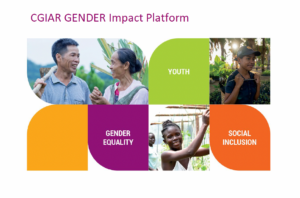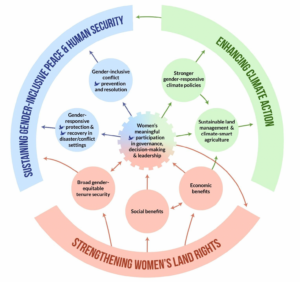At present, both public and private sector institutions are aiming to increase their impact on two pressing global challenges: climate change and gender inequality. A new initiative, the Taskforce on Scaling Voluntary Carbon Markets,2 led by some of the world’s largest financial institutions and corporates demonstrates the corporate commitment to achieve Net Zero GHG Emissions Goals. To succeed, however, these efforts must incorporate a strong focus on sustainable development, and recognize the critical contributions made by women (which underly the achievement of all Sustainable Development Goals).
This paper provides a solution that addresses both simultaneously the need to scale up the private sector voluntary carbon market and generate gender co-benefits by applying a transparent and rigorous methodology. The W+ StandardÔ is a methodology inspired by and modelled on those used to measure carbon emissions reductions. It is a unique mechanism that can be used by companies, projects and investors to measure, quantify, verify and report on women’s empowerment impacts. It can be used in combination with carbon standards to scale up the private voluntary carbon market in a way that addresses SDG53 through the purchase of credits that support both emissions-reduction and women’s empowerment.
If the upscaling of the carbon market also provides new sources of investment to develop carbon credits in advance of their issuance for carbon mitigation projects, as is proposed, this is a golden opportunity to assure that women are engaging in and benefiting from these projects, as entrepreneurs, business and community leaders, consumers and members of women-led cooperatives and groups. By using and building on the W+ Standard, entities such as the Task Force can ensure that both objectives are achieved. Investors, companies and carbon credit buyers should become aware of the existence of the W+ Standard and its processes, and see its value in promoting both climate and gender global agendas to bring about a transformative, scaled-up voluntary carbon market ecosystem.
Authors: WOCAN and W+ Advisory Council




